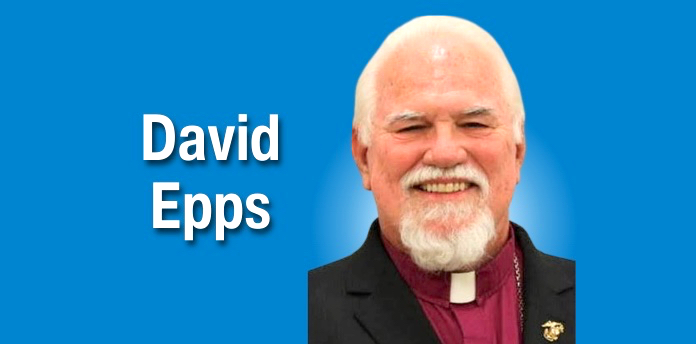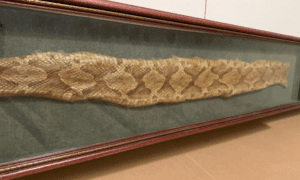If I had it to do over, I would not have been so ambitious. I had a United Methodist License to Preach but was not yet ordained. My superintendent assigned me as a Local Pastor to a four-church circuit in rural northeast Tennessee. I still was planning to head to seminary so I saw this as a terrific opportunity to show what I could do. In retrospect, it would have been far better just to preach, visit, marry, and bury.
Even in 1975, all of the four churches had been founded over a hundred years prior to my arrival. The churches had worship services every other Sunday with the minister making the rounds to all the churches. I was, in essence, a modern-day “circuit rider.” One of the first things I did was to have a service for each church every Sunday morning and I preached in each one. While most pastors have 52 Sunday morning services in a year, I had 208. No one complained or objected.
I also instituted a weekly and well-attended worship and prayer gathering in my home, called the Parsonage Prayer Meeting. To reach out to the community, we began a midweek worship service in a downtown building used by senior citizens.
I taught/preached in each of the weekly gatherings, so add another 104 sermons a year. I set up an office, which I assumed had never been done, in one of the churches and kept office hours. I worked with the youth and made hospital visits faithfully and tried to be a part of each church’s spiritual and social life.
I helped plan revival services for two of the churches and arranged for Southern Gospel Music groups to come and sing at special services. There were other activities, too many to mention, which kept me busy.
I failed, however, to understand certain realities. I was 24 years old, the congregation understood that my ministry there would be limited to a year or two. They were perfectly fine to let me do what I wanted to do, knowing that when I went away, things would go back to normal. The churches had lasted for over 100 years already, and they had seen a multitude of pastors who had come and gone. To some, I was just a kid passing through.
Another problem was that I made decisions on my own without much input. This was a serious mistake. I should have talked, first of all, with my superintendent.
However, I had been in the Marine Corps and had learned that, if I had an assignment, I was to get it done. If things became difficult, Marines were expected to “improvise, adapt, and overcome.” Asking for help might have been considered a weakness. As it turned out, my superintendent expected me to ask questions and seek advice. I didn’t and that was a problem.
Additionally, I should have gotten advice and counsel from the leaders of the churches. There was a ton of wisdom in those gray heads, but it was unsought. As they knew the people and the church better than anyone, it was foolish not to enter into discussions about what I wanted to do.
Another failure was not understanding the culture of each church and the culture of the community at large. One of the expectations of the pastor was to visit the “shut-ins” of the church. I agreed that those who couldn’t get out of the house needed regular pastoral visits.
But some of those classified as “shut-ins” who never came to church, found a way to go shopping, to the beauty parlor, and attend activities at the senior citizens center. In my estimation they weren’t shut-ins at all, so they received few visits during my time there. That would later be used against me.
My yearly full-time salary was $5,200, no other benefits or payments except for a $90 a month gas allowance since we lived in a rural area in a large county. The churches declined to pay their part of Social Security.
When my wife started nursing school at the university thirty-five miles away, our expenses went up. A little over a year after my arrival, at the annual combined business meeting I asked the churches for a raise. This was just what a few of the men had been waiting for. I was chastised for not visiting the “shut-ins,” especially the people who really weren’t, and I was berated and accused of not being able to manage my check book. One man said that my salary of $100 a week was more than adequate. It was a public humiliating and devastating experience. In the end, I received an $8 a month raise, and they eliminated my $90 a month gas allowance.
About a week later, my wife called me in my little office and said that “Mr. Brown” (not his real name) had experienced a heart attack and was rushed to the hospital. I needed to get there immediately, she said.
I said, “Cindy, I have no gas.”
“Mr. Brown” was the man who led the attack against me in the business meeting and was instrumental in my public humiliation and my pitifully meager income being reduced by almost 20%.
She replied, “David, he could die.”
I shot back, “He can die and go to hell, as far as I’m concerned.”
After a pause, she said, “Well, you know what the right thing is to do.”
As bitter as I was, I tried to put on my game face and went to the hospital. I stayed with him and his family and prayed for him. He got better and was released from the hospital several days later. I knew I had a terrible attitude and told God that, if He was my source, I would look to him alone for my financial needs. I told Him I would never ask for a raise from anybody ever again. And I never have.
With the passage of time, I have come to see my failures and accept what happened as due to my own ignorance and arrogance. I also realize that the congregations, as a whole, were supportive of me and what I was trying to do. Only a small minority was truly upset, but they were the loud voices and, as a result, I came to believe that most felt the way the opposition did.
I came to believe (erroneously) that, if I were truly called to the ministry, I wouldn’t be having the problems I was having. If I were truly called, I would be successful instead of being, what I believed was, an utter failure. Again, I did not seek advice from my superintendent who I was certain was terribly upset was me.
So, months after the business meeting, I was done. I was exhausted, dispirited, and tired of collecting soft drink bottles on the side of the roads to exchange for baby food at the local general store.
I was done with the four churches; I was done with pastoral ministry. I was done with the idea of seminary. So, I did the only thing I knew to do. I resigned from the assignment, and I resigned from the ministry. I would, I determined, find something else to do with my life. And I did.
TO BE CONTINUED…
[David Epps is the Rector of the Cathedral of Christ the King (www.ctk.life). Worship services are on Sundays at 10:00 a.m. and on livestream at www.ctk.life. He is the bishop of the Diocese of the Mid-South (www.midsouthdiocese.life)]











Leave a Comment
You must be logged in to post a comment.